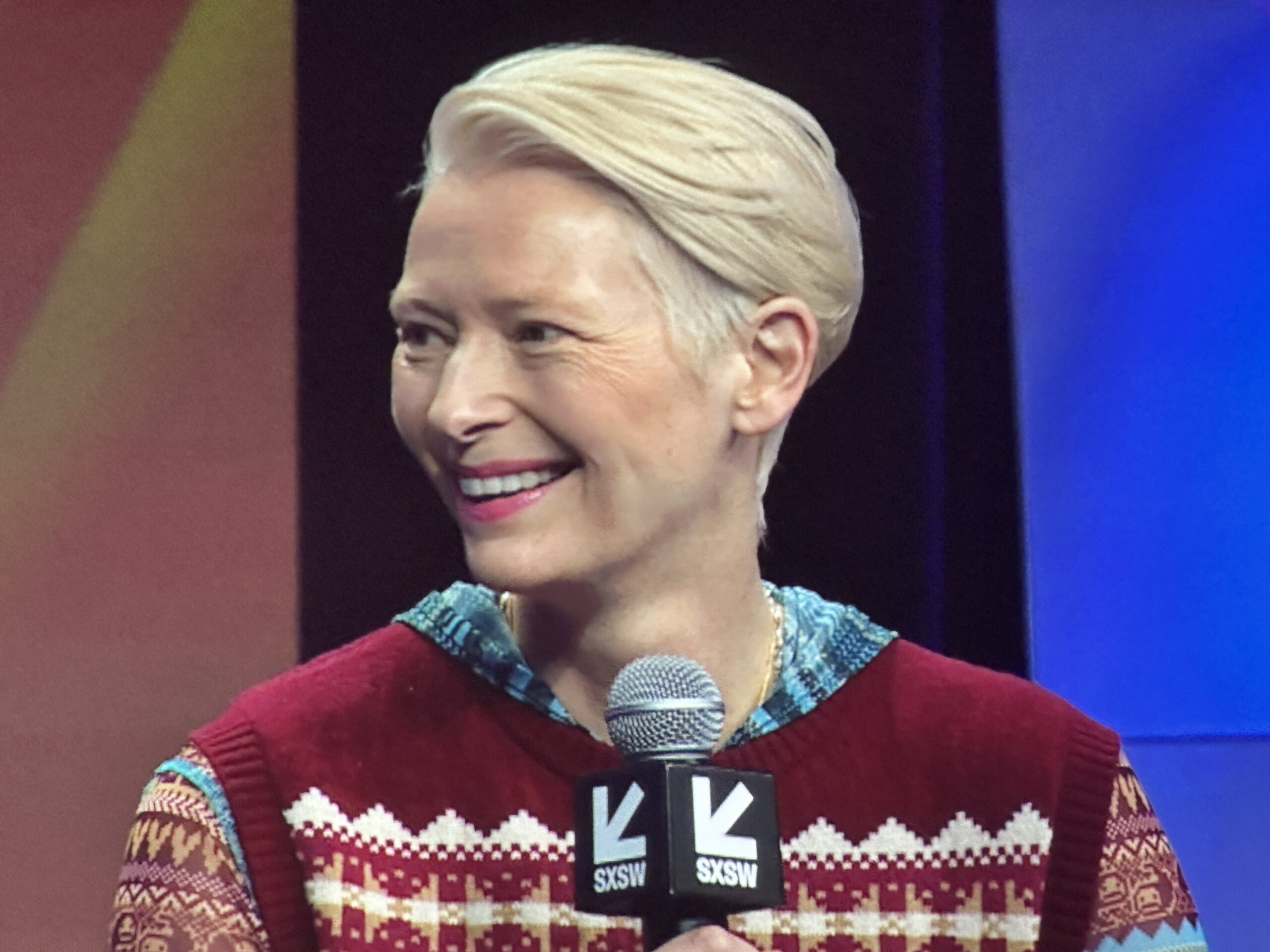“I’ve said this before and I’ll go on saying it. I never wanted and I still don’t want to be an actor.”
So let’s call her a ‘great film presence.’ The famous Scot Tilda Swinton opened up at SXSW about her muse Derek Jarman. It was 36 years ago she made her debut in his film Caravaggio, the first of 9 films they would make together.
“I worked for the Royal Shakespeare Company, discovered I absolutely didn’t want to do that. I was going to stop completely and then I was asked to go and meet Derek Jarman. In 1985 he was making Caravaggio and he wanted to meet me. We just adored each other and I was with him until he died.”
She joked “now we’re going back to the 13th Century here. There was no independent cinema in the UK, but there was the British Film Institute. They made films with Jarman and did this really beautiful thing. They would say to him ‘I’ll give you a little bit of money (like 200,000 pounds) and I will support your next five films. I will support your voice: I want to support you.’ And that was really the place. Derek was flying a really particular flag at that time. He is an extraordinary example of an absolutely self-determining, independent person. He was a gay activist, writer, gardener, painter, filmmaker, amazing person. He’s the real deal.”
Swinton said the conversation she was having on stage at SXSW with director Eugene Hernandez “is really important to me. I love festivals and really love going to festivals. I love sitting in the audience but I also don’t mind sitting up here because I really love what we have. Knowing that many people are here to see films is good for me because it also reminds me how I started with Derek Jarman in the 80s in a collective way. I worked only with him for 9 years until he died in ’94. We were working in this very arcane way of smashing it all up together and not really caring about the product but being much more interested in process.”
The end of his career marked a major turning point in Swinton’s life.
“When Derek died there was really the possibility that that was it – I was high and dry. Then, miraculously, met other people who wanted to work in this way. I feel ashamed to say this because I know there are so many people who long to be actors and they are desperate to say an agent came to see them and sign them. I apologise for my good fortune but I had that good fortune. I didn’t want it but this is the other thing about life: sometimes you get somebody else’s great good fortune and you have to recycle it for your own purposes,” a quip that elicited chuckles from the audience.
“Everytime I make a film I want it to be my last film and get on with the rest of my life. Then I get drawn into another conversation and on it goes. That’s why I don’t describe myself as an actor. I tried ‘show-pony’ once. In the olden days you used to have to write on your passport what you were and I could never write ‘actor’ partly because all of us have heard and read real actors talking about what they do and why they do it and how they do it. It’s not my world! I’d feel a fraud for describing myself as an actor. My priorities seem to be quite different and that’s to do with my beginning.”
Looking forward, Swinton has some sage advice for the next generation who are sadly being groomed to be narcissists. The key antidote is collective action.
“There is a sort of belief that when you make work that at that point all the focus is on you as an individual and all the people you needed to get there fall away and you’ve got to bring it by yourself. It just occurred to me this morning that one thing I can attest to and am actually a real poster child for, is staying collective. You can do it that way! You don’t have to get separated from your herd and keep that spirit. I’ve had a lot of young people ask me this recently about being an individual. Frankly speaking people of our generation didn’t have to deal with it because there was more respect for investment in collective action. But now I do feel there is very often pressure by artists to cut ties, grow big balls, and be a narcissist!”
Swinton said she “would like to lead the charge for faith in collective comfort and support. You don’t have to cut and run.”
Photo by C. Cunningham
Visit the website to find how to attend sessions before the festival ends Mar 19: www.sxsw.com

